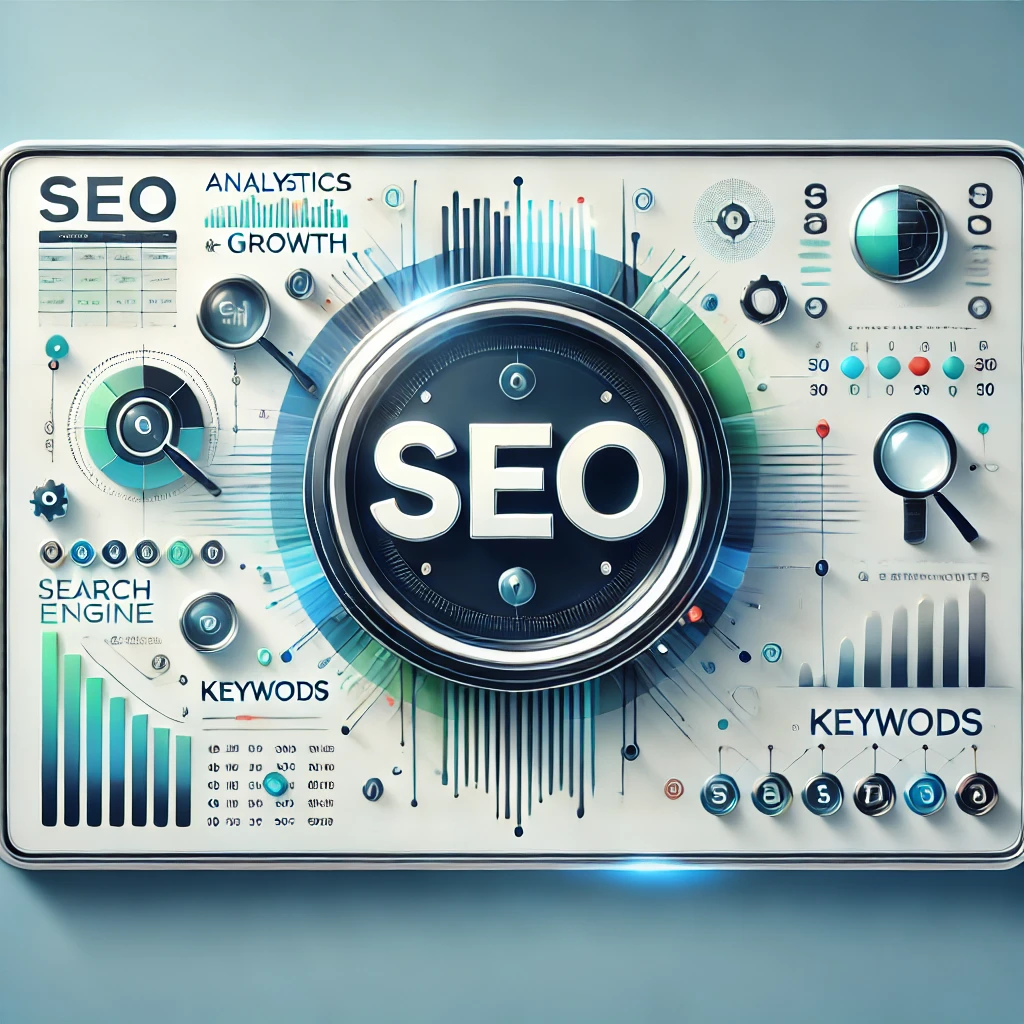PPC vs. SEO
In the modern world where everything is rapidly embracing the digital space, two terms that yield up most of the time are SEO and PPC. Both do have specific characteristics that help make them effective in certain situations, but it is crucial for a business to realize how they function as singles and most importantly how they can function together.
Both strategies can prove highly effective in a range of online marketing approaches, but perhaps the most important thing is to understand when one is more effective on its own than the other, or when it is best to be used in tandem with the other.
Over the course of this article, the reader will learn the distinctive features of SEO and PPC, understand the benefits of both approaches, and see how combining both can provide the best of both worlds for anyone wanting to beat the SERPs.
Understanding SEO with the Long-Term Organic Approach
SEO stands for Search Engine Optimization which is the practice of improving a website’s position on natural, free, or unpaid spaces on the front page of the search engine.
The general concept of SEO is to improve the results that come up when a user types in something in the search bar such as Google, it is the process of aligning the actual content, design, or many other aspects of a website to the search engine’s algorithm.
Its purpose is to optimize the site to rank as high as possible on the SERP to attract more users’ attention, attract more visitors, and entice them to perform a desired action. The main advantage of SEO is that it is not a one-time strategy that yields profit in the short run.
When your site is close to or at the top of what people are searching for, you can retain organic traffic without ever paying the search engine ever again. Optimizing means forming trust and credibility and there is nothing like having a website that keeps appearing in the first few results.
People tend to believe that the organic results are more favorable compared to the paid placement method; therefore, SEO strategies are a powerful tool in building up brand image and continuous support in the long run.
The Power of PPC with Instant Visibility Paid Advertising
Used frequently in the internet marketing context, PPC advertising involves paying a certain amount per every click by users on the ad placed. A form of paid advertising that shows up above or below the actual search results with the label ‘Sponsored’ or ‘Ad’ next to the link.
PPC can be used to buy ad word space which means companies can be put on the first page of Google without first going through all the ranking procedures that they have to undergo. Google AdWords is perhaps the most widespread PPC system among the many online networks such as Bing AdWords, Facebook AdWords, and Instagram AdWords.
Another unique benefit of PPC advertising is its extreme versatility, especially the capability to offer immediate exposure. With the right bid and targeting, businesses can get their ads out there to relevant users and encourage a traffic flow to the business’s website instantly.
This is especially useful for companies that have products or services they wish to market with a particular time constraint, new products in the market, and the company seeking to create awareness of the brand at a particular time.
In addition to providing precise control over the budget, targeting opportunities, and time, PPC enables businesses to target their actions solely on the users who are most likely to complete a purchase.
However, PPC is expensive if one is targeting many keywords within a short period as the cost per click in some industries is high. Unlike SEO, the traffic that is been driven through PPC will cease as soon as the money for advertising is exhausted hence more of a short-term phenomenon.
SEO vs. PPC Key Differences While When to Use Each
To be able to choose between approaching SEO, PPC, or both, it is crucial to familiarize yourself with the main differences between both types.
While achieving success in terms of ranking and page views without paying any money to Google, SEO is based on building up authority and solving issues related to search engine optimization. PPC is more urgent to use paid advertisements for gaining traffic on a website.
In the long run, Search Engine Optimization is always preferred due to its cost of effectiveness as compared with the cost of Pay-Per-Click Advertising for businesses with small budgets and intent on experiencing exponential growth.
By so doing, it helps them develop stable traffic trickle over time without having to continue paying for the advertisement. It is also effective for companies that need to establish their site’s authority and that require constant traffic in the long run.
On the other hand, companies that require quick effectiveness, like those in short-time promotions or product launches, shall make use of the PPC. That is why PPC works well for campaigns that should reach specific demographics, locations, and users’ behavior since it allows receiving the result at a fast pace at the PPC company.
It is also appropriate for industries where it can be hard to rank organically or for new businesses that aim to rank quickly. All in all, the choice to choose Search engine optimization, PPC, or both will rely upon the goal of the business, its expected budget, and the time span it needs to take to accomplish its targets.
The Cooperative Energy of Consolidating SEO and PPC
While Search engine optimization and PPC are strong all alone, they are much more powerful when utilized together. Consolidating the two techniques enables you to use the qualities of each methodology, bringing about better visibility, expanded traffic, and higher conversions.
- Dominating Search Results
One of the most significant advantages of combining SEO and PPC is the ability to dominate the search engine results pages (SERPs). With a strong SEO strategy, your website can rank high in organic results, while a well-targeted PPC campaign ensures that your business also appears in the paid ad section.
This dual presence increases brand visibility and reinforces trust, as users see your business in both organic and paid listings. It also helps capture users at different stages of the buying journey, ensuring that your business is top of mind.
- Getting Valuable Insights
Combining the data from both SEO and PPC campaigns provides valuable insights into customer behavior. By analyzing the keywords that perform well in your PPC campaign, you can optimize your SEO strategy by creating content around those high-converting keywords.
Similarly, if certain organic keywords are driving significant traffic, you can allocate more budget to those keywords in your PPC campaign to maximize conversions.
- Balancing the Traffic
Using SEO and PPC together also offers a safety net. On the off chance that SEO endeavors are taking more time to convey results, a PPC mission can fill the hole by driving quick traffic. On the other hand, when your SEO procedures begin to show results, you can decrease your PPC budget and spotlight more on organic development, making it a decent and reasonable methodology.
How to Effectively Combine SEO and PPC?
To successfully combine SEO and PPC as part of a unified strategy, businesses need to ensure that both approaches work together seamlessly. Start by identifying the keywords that are most important to your business.
These could be terms related to your products, services, or the specific needs of your target audience. Use these keywords in both your SEO and PPC campaigns to ensure a consistent message across all channels.
Then, focus on adjusting your messaging and branding. Your PPC advertisements should supplement the content you're making for SEO purposes. For instance, assuming your Search engine optimization strategy centers around featuring your organization's proficiency in a particular region, your PPC promotions should build up that skill with clear, brief information.
This alignment creates a cohesive brand experience for users who encounter your business in both paid and organic listings. Additionally, businesses should continuously monitor and optimize their SEO and PPC efforts.
Regular analysis of performance data is essential to identify what’s working and what needs adjustment. If certain keywords perform well in PPC but don’t rank well organically, invest more time in optimizing those pages for SEO. On the flip side, if a keyword ranks high organically but doesn’t convert well in PPC, reconsider the messaging or targeting in your paid ads.
Conclusion: The Best of Both Worlds
While Search engine optimization and PPC fill various needs, the blend of the two systems offers the smartest possible scenario. Your business can acquire long-haul gains through SEO and PPC. By utilizing the qualities of the two methodologies, organizations can accomplish a fair and viable digital marketing strategy.
Search engine optimization will support areas of strength for organic development, while PPC can give the speedy successes expected to drive changes and increment brand mindfulness. Together, SEO and PPC structure a strong team that can assist organizations to succeed in the present cutthroat online climate.
As the digital world keeps on developing, organizations that put resources into both SEO and PPC will be better prepared to handle changes, catch new opportunities, and stay at the very front of their ventures.


